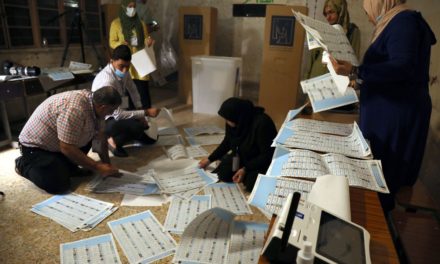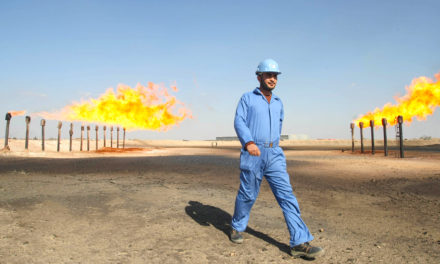The religious authority, through its role as a bridge between the demonstrators and the authorities, enabled the government to a limited extent to regain control and manage the situation. Meanwhile, whilst the rivalry between the various political movements to appoint a successor to the Prime Minister has become more acute than ever before, the actions and decisions taken by the religious authority may yet prove to be a decisive factor in the future direction taken by these political movements during the process of electing the next prime minister, someone who will not prove to be incompetent for the role, and more critically, to avoid a political stalemate that may ultimately plunge the country into an even deeper crisis.
By way of an adjunct to the above, the religious authority enjoys immense credibility and trust among all segments of Iraqi society: from the ordinary man on the street to the political elite, a matter that has handed the religious authority the trump card in implementing the best and most appropriate scenario for the future of the country. This is especially the case following not only the resignation of the Prime Minister but also Barham Saleh’s response on Thursday 26/12/2019, when he threatened to resign from the Presidency of the Republic because of the pressure he is under from certain political factions who wish to impose on him a candidate of their choice for the position of Prime Minister.
It therefore follows that Iraq is now and more than ever before in desperate need of a positive and sound role being played by the religious authority in order to prevent the political classes from riding the wave of uncertainty and plunging the country into a new round of political chaos. It is worthwhile mentioning that Barham Saleh has, as far as possible, and in the midst of the intense rivalries between the various political blocs and factions, tried to defend the right of the Iraqi people from having foisted upon them an ineffectual and ineffective successor to the office of Prime Minister. However, it now seems that these same tyrannical political blocs and factions intend to drag the Iraqi president into the same fate as that of Adil Abd Al-Mahdi.
In such circumstances, the support of the religious authority for Barham Saleh, in his capacity as the President of the Republic of Iraq, will undoubtedly provide the means for an orderly process for the selection of a suitable candidate as the successor to the outgoing Prime Minister. For there is little doubt that following the resignation of Prime Minister Adil Abd Al-Mahdi, if someone with the prominence of Barham Saleh, and particularly during this sensitive period, were forced to abdicate the Presidency of the Republic; which currently provides the country with a political centre of gravity and which has so far also prevented the complete collapse of the structure of Iraqi governance; there is no guarantee that Iraq will not descend into political chaos, crisis, and even civil war and eventual disintegration.
Under such circumstances, there may appear to be some degree of ambivalence in the stance taken by Barham Saleh’s in that his lack of approval of the candidate for prime minister as proposed by the largest parliamentary alliance will be seen as a violation of Iraq’s constitution by the office of the President. However, in order to shed more light on this possible ambivalence, it has to be said that although Barham Saleh, in his capacity as President of the Republic, and pursuant to Article 76 of the constitution, is obliged to ask the person who is nominated by the largest parliamentary bloc to form a new government without having the right of veto; nevertheless, and the same time, the President is also under a duty, pursuant to Article 67 of the constitution, to protect the independence, sovereignty, unity, and territorial integrity of Iraq, and as such Barham Saleh considers himself equally obliged not to remain silent regarding the self-serving positions adopted by some of the political movements in the the selection of the next prime minister, as otherwise he may also be seen as having violated the constitution.
Therefore, Barham Saleh, in order to resolve the possible contradictions resulting from the statement issued by him on Thursday, 26/12/2019, announced his readiness to submit his resignation as President of the Republic, so that Iraqi parliamentarians, in accordance with their responsibilities as representatives of the Iraqi people, can take the decisions that they deem appropriate. Announcing his readiness to tender his resignation removes the cloak of ambivalence from Barham Saleh’s actions towards the Iraqi constitution.
Notwithstanding the fact that the majority of politicians, political parties and movements, ranging from the Sairoon coalition led by Muqtada Al-Sadr to the National Wisdom Movement led by Ammar Al-Hakim; the Nasr coalition led by former Iraqi Prime Minister Haider Al-Abadi; the National Alliance led by former Iraqi Prime Minister Ayad Allawi; the Development Front under the leadership of Osama Al-Nujaifi, the former president of the Iraqi parliament; the Kurdistan Islamic Union bloc; the Change Movement bloc; the National Unity bloc and the Kurdistan Democratic Party, all announced their political support for the decision taken by Barham Saleh, the religious authority should also have voiced its support for the position taken by the office of the President.
However, in view of the fact that the Friday sermon delivered in Karbala on December 27, in accordance with the statement issued by the office of Ayatollah Sistani, did not include the usual political commentary, this omission could lead to some questions being raised at a time when many were anticipating the Friday sermon, which coincided with the announcement by Iraq’s President Barham Saleh of his intention to resign, to reveal, in one way or another, the views of the religious authority in this regard. This particular omission may yet prove to be a source of yet more tension between the rival political factions and movements, providing some with the opportunity to exploit the situation with the aim of seizing political power.
At this juncture, a further question arises regarding the present state of affairs: if the demonstrators on the streets of Iraq have been demanding a candidate not allied to any of the existing political parties, then why is Parliament still insisting on selecting the candidate promoted by the largest bloc? It thus becomes almost inevitable that anyone selected in this manner will be rejected by the people demonstrating on the streets of Iraq, which goes to the heart of Saleh’s reasons for hinting at tendering his resignation, whilst it should be noted that the political blocs have been cynically using the constitution to shield themselves from the demands of the masses who want a candidate from outside the existing political and partisan framework.
The other question that arises is why all this rivalry when everyone knows that the next government will only be an interim government whose main purpose will be to prepare the groundwork for early elections, assuming all the necessary preparations have been completed, including the enactment of the election and electoral commission law in its final form. The ongoing popular movement adheres to the principle of choosing an uncontroversial figure for the role of prime minister who is acceptable to them, not to the political classes. It is over this fundamental issue that the differences between the two sides form a large chasm, in that the candidate who receives the blessing of the masses will in all likelihood be outside the circle of consensus that exists between the political parties, something that will definitely not appeal to the majority of the political parties.
The only constant so far is the unwavering commitment of the masses to their rejection of any candidate promoted by any of the political blocs, while maintaining the same conditions for reform, a position that places the Iraqi president, Barham Saleh, in an extremely awkward position, and the political classes in an equally unenviable situation. No one knows so far if Saleh will succeed in fixing matters through the series of upcoming meetings, or otherwise he will search for political solutions that may eventually extricate the country out of the current crisis.

Hayder Al-Khafaji
Hayder Al-Khafaji is a researcher on Middle Eastern affairs with a specialist focus on Iraq-Iran relations. He holds a postgraduate certificate in Islamic Studies from Birkbeck College, University of London, and a master’s degree from Middlesex University where he is currently completing a Professional Doctorate in Muslim cultures.










